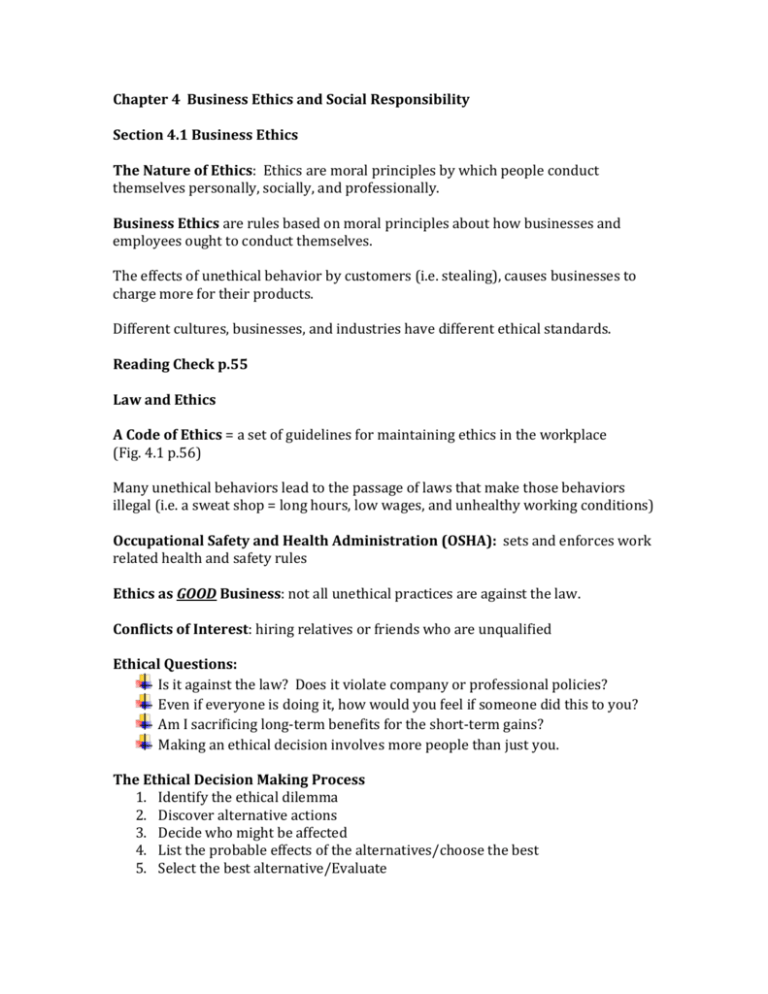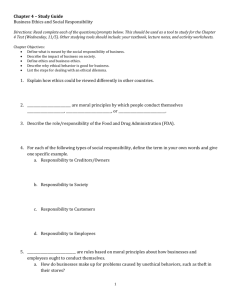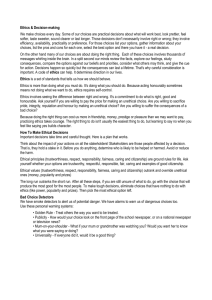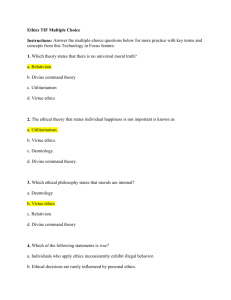Chapter 4 Notes
advertisement

Chapter 4 Business Ethics and Social Responsibility Section 4.1 Business Ethics The Nature of Ethics: Ethics are moral principles by which people conduct themselves personally, socially, and professionally. Business Ethics are rules based on moral principles about how businesses and employees ought to conduct themselves. The effects of unethical behavior by customers (i.e. stealing), causes businesses to charge more for their products. Different cultures, businesses, and industries have different ethical standards. Reading Check p.55 Law and Ethics A Code of Ethics = a set of guidelines for maintaining ethics in the workplace (Fig. 4.1 p.56) Many unethical behaviors lead to the passage of laws that make those behaviors illegal (i.e. a sweat shop = long hours, low wages, and unhealthy working conditions) Occupational Safety and Health Administration (OSHA): sets and enforces work related health and safety rules Ethics as GOOD Business: not all unethical practices are against the law. Conflicts of Interest: hiring relatives or friends who are unqualified Ethical Questions: Is it against the law? Does it violate company or professional policies? Even if everyone is doing it, how would you feel if someone did this to you? Am I sacrificing long-term benefits for the short-term gains? Making an ethical decision involves more people than just you. The Ethical Decision Making Process 1. Identify the ethical dilemma 2. Discover alternative actions 3. Decide who might be affected 4. List the probable effects of the alternatives/choose the best 5. Select the best alternative/Evaluate Section 4.2 Social Responsibility Business and Social Responsibility: the duty to do what is best for the good of society. Businesses that follow ethical standards value integrity and honesty in their employees. Some people believe that producing products that benefit society is not enough when it comes to fulfilling social responsibility (i.e. limiting pollution) Reading Check p.60 Responsibility to Customers: customers are a businesses first responsibility. Fair competition is essential in our market economy and unfair practices such as monopolies and price fixing hurt the consumer. Responsibility to Employees: businesses must provide safe working condition, equal treatment, and fair pay. Equal Pay Act (1964) Americans with Disabilities Act. Unethical treatment of employees results in low morale, poor production, and a high turnover rate. Responsibility to Society (Environmental Protection Agency) Responsibility to Creditors and Owners: since the 1990’s the federal gov’t has passed legislation that make the Chief Executive Officer (CEO) more responsible for inaccurate accounting records. After You Read p.63











